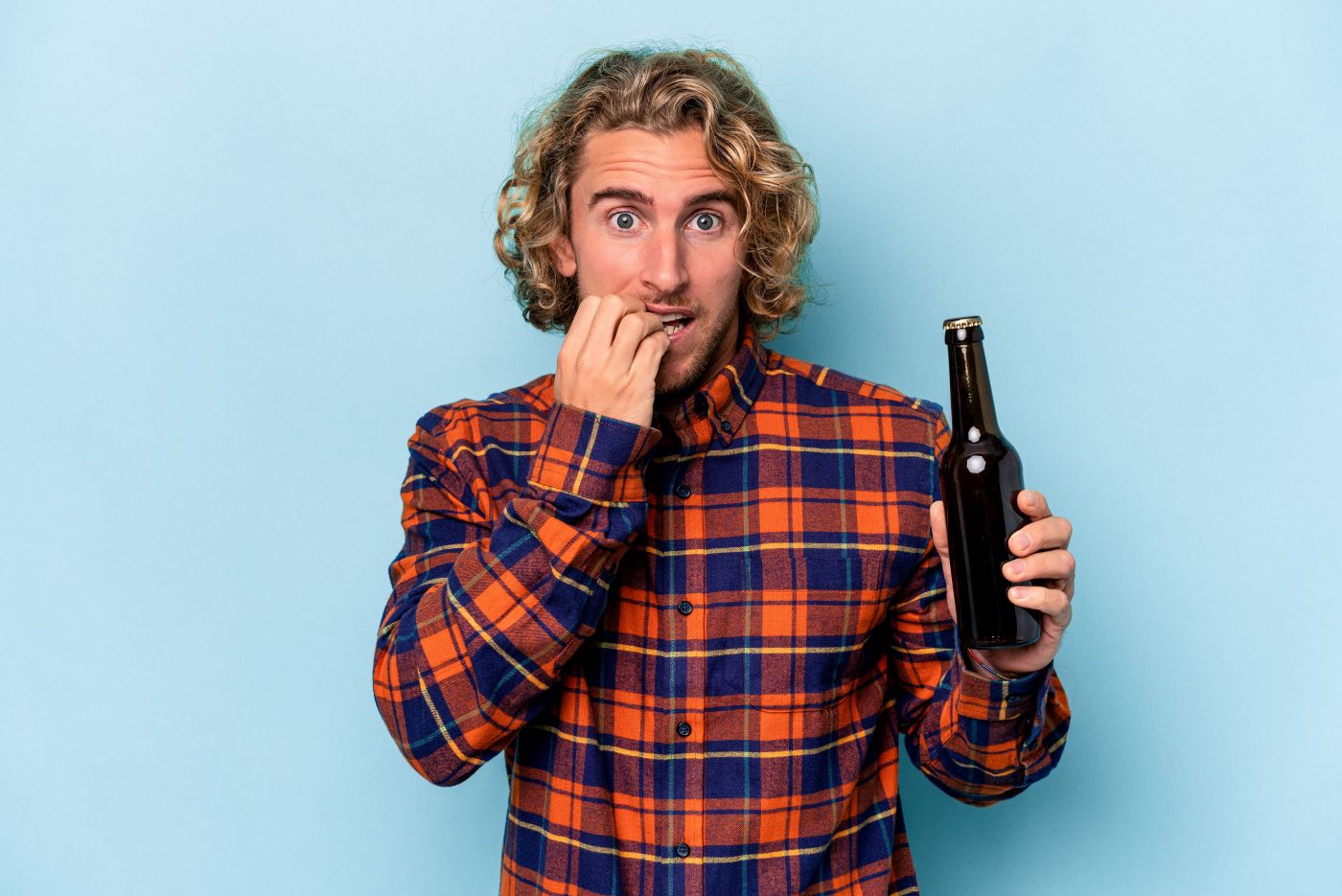It’s not likely to come as a surprise that alcohol consumption, especially in excess, can be harmful to health. Many people are aware of the short-term effects of drinking on a person’s ability to function, and they may even know about the impact of alcohol on the heart, liver, and other organs. However, very few people know or think about the way that drinking alcohol impacts skin health. According to Dr. Channing Hood of U.S. Dermatology Partners in Lakewood and Denver, Colorado, “I see many patients who have noticed dark circles, redness, inflammation, and accelerated skin aging. I always ask about alcohol consumption, and I hope my patients are straightforward with me about how much they drink. Having an honest estimation of my patients’ alcohol consumption ensures I provide the best advice on how to counteract and prevent the negative effects it can have on the skin.” In this blog, Dr. Hood explains skin concerns related to alcohol consumption and reviews some of the top prevention and treatment options.
Understanding Skin Conditions Related to Alcohol Consumption
When it comes to the impact of alcohol consumption on skin health, Dr. Hood says, “Because alcohol is hard on your body, it’s no surprise that it can wreak havoc on the health and appearance of your skin as well. Drinking alcohol impacts everyone differently, so it can be very helpful to discuss potential skin health risks with your dermatologist. They can also provide personalized skincare recommendations.”
Some of the common skin health concerns related to alcohol consumption include:
- Urticarial reaction – Commonly called hives, this skin condition can both be caused and worsened by alcohol consumption.
- Flushing – Skin feeling hot and looking red is common when drinking and it may be indicative of an allergy to alcohol.
- Nasal redness and inflammation – For some people, flushing may focus on the nose, causing redness and possibly congestion. This most commonly occurs when consuming beer and wine.
- Porphyria cutanea tarda (PCT) – A rare skin condition that causes painful blistering on areas of the skin exposed to sunlight. It occurs due to a defect in liver enzymes that is often associated with excessive alcohol consumption.
- Rosacea – There have been several studies that showed a noted increase in rosacea risk for those who drink. Additionally, drinking can increase the number and severity of rosacea flare-ups.
- Psoriasis – Psoriasis is a chronic skin condition that presents as thickened, dry, and itchy patches of skin. Like rosacea, research indicates that drinking can increase the risk of developing psoriasis as well as trigger flare-ups.
- Seborrheic dermatitis – This chronic skin condition causes red, scaly, flaky patches in oily areas of the skin. Most often, symptoms present on the scalp, but can also occur on the face. Alcohol consumption is one of the most common triggers for seborrheic dermatitis flare-ups.
- Dehydration/Dryness – One of the most obvious skin health concerns related to alcohol is dryness. Drinking alcohol is very dehydrating to the body, and that is reflected in the skin as well, leading to dry, flaky skin with uneven texture.
- Increased skin cancer risk – Because alcohol can negatively impact the body’s ability to repair cellular damage from the sun, drinking, especially to excess, increases the risk for skin cancer.
The Science Behind Alcohol’s Impact on Skin
The reason alcohol is hard on the skin and body is because of how it’s broken down. When alcohol is consumed, a byproduct called acetaldehyde is produced. This byproduct is toxic. It can be drying and cause inflammation. These effects take place throughout the body, but the skin is often hit especially hard by these effects. Dr. Hood says, “As the largest organ in the body, our skin serves a very important purpose – it protects our more sensitive interior organs and body systems from potential damage. Unfortunately, the body doesn’t always return the favor. In order to maintain overall health, the body often pulls nutrients and moisture away from the skin, rerouting them to more vital organs. This makes it difficult to keep the skin and whole body healthy. It’s important to balance alcohol consumption with good skincare, adequate water intake, and a nutrient-rich diet to minimize any adverse effects.”
Managing Alcohol-Related Skin Conditions
As mentioned by Dr. Hood above, practicing good skin health, drinking plenty of water, and eating a healthy diet all help to offset the negative impact of alcohol consumption on the skin. Additionally, consider the following tips to prevent and address skin health issues related to alcohol use:
- Take good care of your skin every day. That includes cleansing your skin, using toner, and applying moisturizer in the morning and evening. It should also include protecting your skin against UVA and UVB damage with sunscreen like MD Skin Essentials Tone Shield. This is a hydrating sunscreen that protects against sun damage and keeps skin moisturized.
- Before drinking, apply moisturizer. You should also remove any cosmetics, clean the skin carefully, and apply a thick, cream-based moisturizer before going to sleep.
- Choose clear liquors rather than additive-heavy drinks like beer, wine, and dark liquors. Light-colored liquors tend to have fewer ingredients, allowing the body to process them more easily.
- Take time off after drinking to allow your skin and body plenty of time to fully recover.
- Get plenty of sleep after drinking to give your body time to heal and regenerate healthy cells.
- Sleep propped up to avoid the accumulation of fluids in the face that can increase inflammation and puffiness.
- Exercise the next day. This removes toxins from the body, and the increased blood flow can prevent inflammation and other skin health concerns related to alcohol consumption.
Healthy Skin in Balance: Moderation and Care
Drinking alcohol in moderation and caring for your skin offsets many of the potentially negative ways that alcohol affects the skin. According to Dr. Hood, “I never tell my patients they shouldn’t drink alcohol unless they have other health conditions or take medications that make alcohol consumption, even in moderation, dangerous. Instead, I help my patients understand and counteract the negative impact of drinking alcohol, so they can enjoy a cocktail or two periodically without needing to worry as much about potential skin health issues.”
Talk to a Knowledgeable Professional
If you’ve noticed changes in your skin related to alcohol consumption, chronic skin conditions, sun exposure, age, or any other concerns, the U.S. Dermatology Partners team is here to help you achieve and maintain healthier skin. We do our utmost to make getting started with our skilled dermatologists simple and straightforward. You’ll just need to take a few moments to complete our online scheduling request form. Once we hear from you, a team member will be in touch to finalize the details of your appointment.
Find a location near me
or


